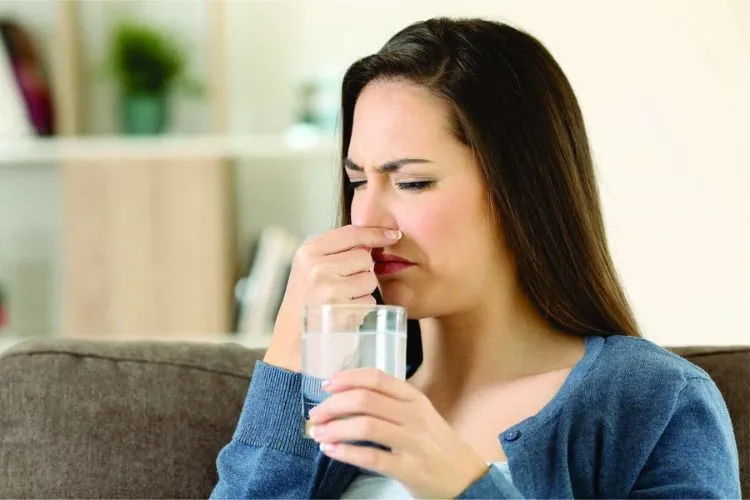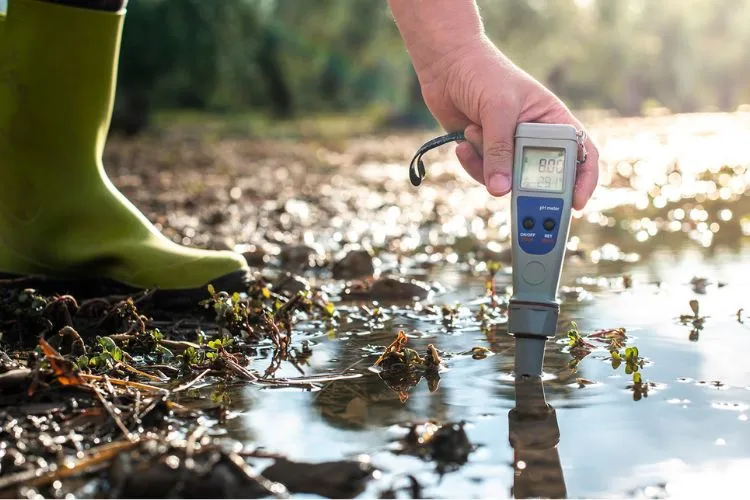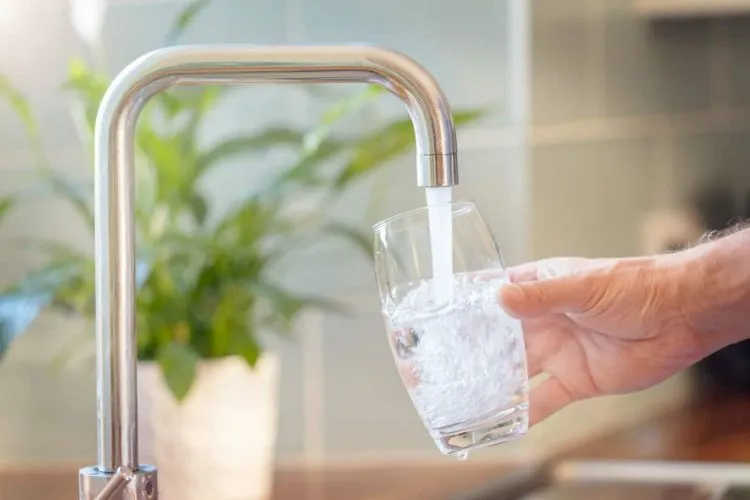Florida, the Sunshine State, is renowned for its beautiful beaches, lush landscapes, and vibrant communities.
Yet, despite these attractions, there’s a less appealing aspect that often comes as a surprise to both residents and visitors alike: the quality of its water.
Across forums, social media, and community discussions, the poor quality of Florida water is a recurring complaint.
But, why is Florida water so bad?
This article delves into the reasons behind Florida’s water woes and examines the effects on its inhabitants and environment.

💦 Understanding Water Quality
Understanding water quality is crucial as it defines the suitability of water for various purposes including drinking, recreational activities like swimming and fishing, and industrial use.
It encompasses the analysis of water’s chemical, physical, and biological properties. To ensure the safety and health of ecosystems and human populations, water quality standards are implemented and monitored.
In the USA, the Environmental Protection Agency (EPA) establishes guidelines for drinking water, whereas state agencies modify these standards according to local conditions and requirements.
For instance, Florida adheres to its own specific water quality criteria, facing distinct challenges such as algae blooms and saltwater intrusion, necessitating continuous monitoring and innovative management strategies to safeguard water resources.
💦 Why Is Florida Water So Bad?
Geographical and Environmental Factors
Florida’s geography plays a significant role in its water quality issues. The state sits on porous limestone aquifers.
These aquifers are susceptible to contamination from surface activities. Pollutants can easily seep into the groundwater, affecting both drinking water and the ecosystem.
Urbanization and Population Growth
Rapid urbanization and a growing population put immense pressure on Florida’s water systems. Increased demand for water leads to stress on water sources and infrastructure. This, combined with pollution from dense urban areas, exacerbates water quality problems.
Agricultural Runoff
Agriculture is a major part of Florida’s economy. However, runoff from farms, containing pesticides and fertilizers, contributes to water pollution. These chemicals enter water bodies, promoting algae growth that harms water quality and marine life.
Aging Infrastructure
Much of Florida’s water infrastructure is old and in need of repair or replacement. Aging pipes can lead to leaks and contamination of water supplies. Upgrading this infrastructure is a costly challenge.
Natural Disasters
Florida frequently faces hurricanes and floods. These natural disasters can overwhelm water systems, leading to contamination. Repairing the damage and restoring water quality after such events is a significant challenge.
Saltwater Intrusion
Over-pumping of groundwater for agricultural, industrial, and residential use has led to saltwater intrusion in many coastal areas. This not only degrades water quality but also threatens freshwater supplies.
💦 Implications of Poor Water Quality

The effects of poor water quality extend beyond unpleasant tastes or odors. Contaminated water poses health risks, including gastrointestinal disorders, neurological conditions, and other serious health issues.
Economically, water quality problems can impact tourism, a major industry in Florida, as well as property values. Environmentally, poor water quality harms wildlife and aquatic ecosystems, leading to a loss of biodiversity.
💦 Current Efforts to Improve Water Quality in Florida
Government Initiatives
The state of Florida and the federal government have launched various initiatives aimed at improving water quality.
These include funding for infrastructure upgrades, stricter pollution controls, and efforts to reduce agricultural runoff. Policies aimed at protecting wetlands also play a crucial role in maintaining healthy water systems.
Community and NGO Actions
Local communities and non-government organizations (NGOs) are active in water quality improvement efforts.
Projects range from planting trees and restoring wetlands to organizing clean-up events. These actions, while small in scale, contribute to larger conservation goals.
Technological Advances
New technologies offer hope for better water management. Advanced water treatment systems, efficient irrigation methods, and innovative solutions to reduce contamination are being developed and implemented.
These technologies promise to improve water quality while reducing the burden on natural resources.
💦 Pro Tips: Coping with Florida’s Water Quality

Residents facing water quality issues can take several measures to protect themselves. Installing water filters at home can significantly improve the quality of drinking water.
For those concerned about broader water issues, engaging in local environmental groups and advocating for policy changes can make a difference.
Additionally, reducing personal water use and preventing pollution contribute to statewide water quality improvement efforts.
💦 Frequently Asked Questions (FAQs)
Is Florida’s tap water safe to drink?
In most areas, Florida tap water meets federal and state safety standards. However, specific local conditions may affect water quality. It’s advisable to check local water quality reports or test your water if you have concerns.
What are the most common contaminants found in Florida’s water?
Common contaminants include pollutants from agricultural runoff, such as nitrates and pesticides, chemicals from industrial waste, and pathogens from sewage overflows.
How can I test the water quality in my home?
You can request a water quality test from your local water provider or purchase a home testing kit from a hardware store or online.
Are there areas in Florida with good water quality?
Yes, water quality varies across the state. Some regions, particularly those with less industrial activity or dense population, may have better water quality.
How does Florida’s water quality compare to other states?
Water quality issues are not unique to Florida. Each state faces its own challenges, influenced by geography, industry, and infrastructure. However, Florida’s specific conditions, such as its susceptibility to natural disasters and saltwater intrusion, present unique challenges.
Can using water filters at home significantly improve water quality?
Yes, water filters can remove many contaminants and improve the taste and safety of tap water. It’s important to choose a filter certified for the contaminants you’re concerned about.
What steps can I take to help improve water quality in Florida?
Individual actions can include reducing water usage, avoiding the use of harmful chemicals, participating in local clean-up events, and supporting policies aimed at water conservation and pollution reduction.
Conclusion:
Florida’s water quality issues are complex and multifaceted, involving environmental, infrastructural, and regulatory challenges.
Addressing these concerns requires a collective effort from government, communities, and individuals.
Active engagement and innovative solutions are essential to ensure clean, safe water for all residents of the Sunshine State.

Devon Shorts, a seasoned expert with over a decade of experience in water safety, shares valuable insights on this blog “Aqua Safety Plus”. Trust his expertise to keep your water clean and your family safe.
